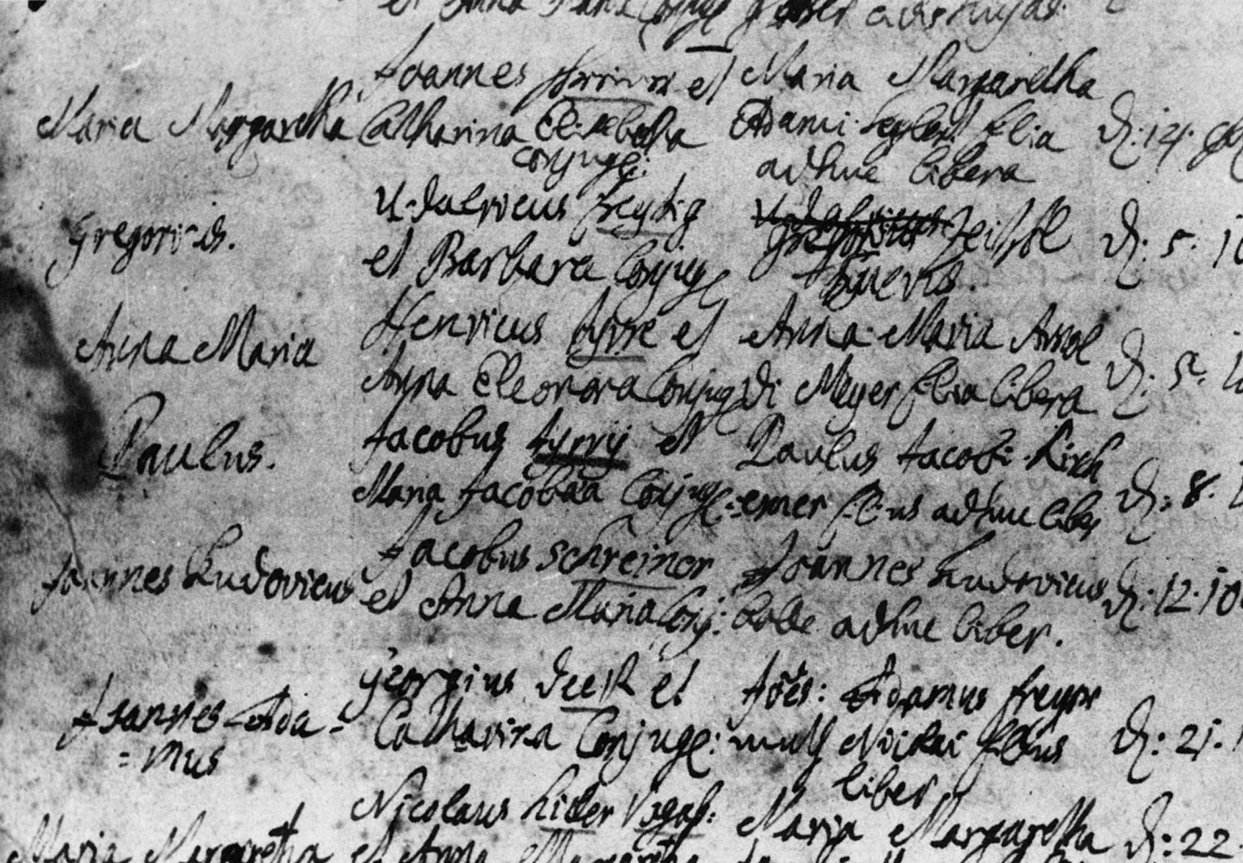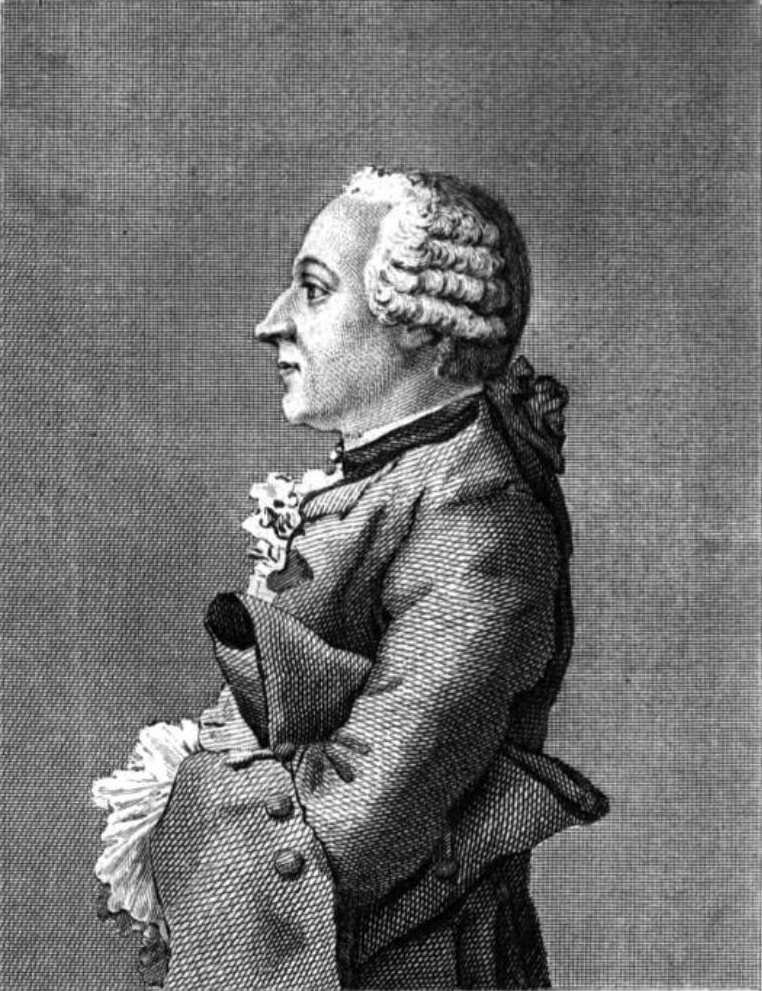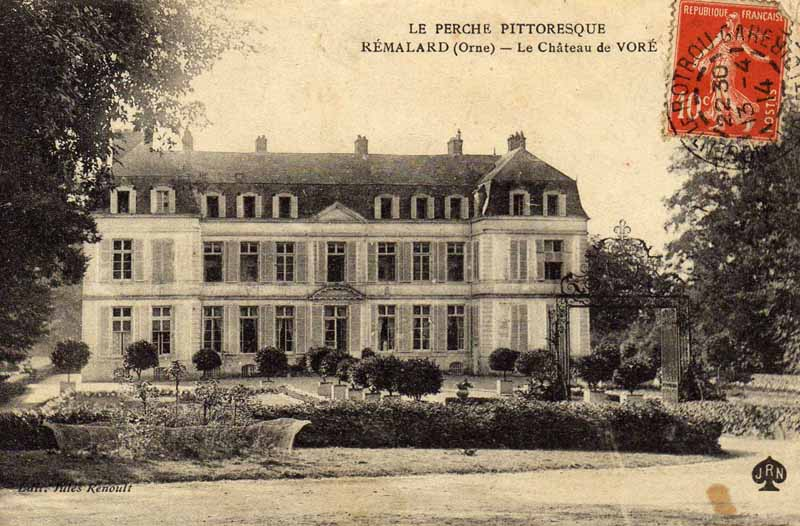|
The Friends Of Voltaire
''The Friends of Voltaire'' is an anecdotal biography of 18th-century French writer Voltaire written by English author Evelyn Beatrice Hall under the pseudonym ''S. G. Tallentyre''. It was published in 1906. In 1907, it was published in Great Britain under the author's own name by G. P. Putnam's Sons. The classic work about Voltaire was still being printed nearly 100 years later in 2003. Overview The book is in the form of an anecdotal biography telling the stories of ten men whose lives fell very closely together. The ten men were true contemporaries and aside from their friendship with Voltaire they were more or less closely associated with one another. Each of the ten is characterized by giving him an identifying label: d'Alembert the Thinker, Diderot the Talker, Galiani the Wit, Vauvenargues the Aphorist, d'Holbach the Host, Grimm the Journalist, Helvétius the Contradiction, Turgot the Statesman, Beaumarchais the Playwright, and Condorcet Marie Jean Antoine Nicolas de C ... [...More Info...] [...Related Items...] OR: [Wikipedia] [Google] [Baidu] |
Voltaire
François-Marie Arouet (; 21 November 169430 May 1778) was a French Age of Enlightenment, Enlightenment writer, historian, and philosopher. Known by his ''Pen name, nom de plume'' M. de Voltaire (; also ; ), he was famous for his wit, and his criticism of Christianity—especially Criticism of the Catholic Church, of the Roman Catholic Church—and of slavery. Voltaire was an advocate of freedom of speech, freedom of religion, and separation of church and state. Voltaire was a versatile and prolific writer, producing works in almost every literary form, including stageplay, plays, poems, novels, essays, histories, and scientific Exposition (narrative), expositions. He wrote more than 20,000 letters and 2,000 books and pamphlets. Voltaire was one of the first authors to become renowned and commercially successful internationally. He was an outspoken advocate of civil liberties and was at constant risk from the strict censorship laws of the Catholic French monarchy. His polemics ... [...More Info...] [...Related Items...] OR: [Wikipedia] [Google] [Baidu] |
Evelyn Beatrice Hall
Evelyn Beatrice Hall (28 September 1868 – 13 April 1956),Sources which date Hall's death to 1919, such aFred R. Shapiro's ''The Yale Book of Quotations'' are in error. The confusion may have arisen because Hall published no further written work after 1919. who wrote under the pseudonym S ephenG. Tallentyre, was an English writer best known for her biography of Voltaire entitled ''The Life of Voltaire'', first published in 1903. She also wrote ''The Friends of Voltaire'', which she completed in 1906. In ''The Friends of Voltaire'', Hall wrote: "I disapprove of what you say, but I will defend to the death your right to say it" as an illustration of Voltaire's beliefs. This quotation – which is sometimes misattributed to Voltaire himself – is often cited to describe the principle of freedom of speech. Personal life Hall was born on 28 September 1868 in Shooter's Hill, Kent, the second of the four children of the Reverend William John Hall (1830–1910), Minor Canon of St Pa ... [...More Info...] [...Related Items...] OR: [Wikipedia] [Google] [Baidu] |
D'Alembert
Jean-Baptiste le Rond d'Alembert (; ; 16 November 1717 – 29 October 1783) was a French mathematician, mechanician, physicist, philosopher, and music theorist. Until 1759 he was, together with Denis Diderot, a co-editor of the ''Encyclopédie''. D'Alembert's formula for obtaining solutions to the wave equation is named after him. The wave equation is sometimes referred to as d'Alembert's equation, and the fundamental theorem of algebra is named after d'Alembert in French. Early years Born in Paris, d'Alembert was the natural son of the writer Claudine Guérin de Tencin and the chevalier Louis-Camus Destouches, an artillery officer. Destouches was abroad at the time of d'Alembert's birth. Days after birth his mother left him on the steps of the church. According to custom, he was named after the patron saint of the church. D'Alembert was placed in an orphanage for foundling children, but his father found him and placed him with the wife of a glazier, Madame Rousseau, with wh ... [...More Info...] [...Related Items...] OR: [Wikipedia] [Google] [Baidu] |
Diderot
Denis Diderot (; ; 5 October 171331 July 1784) was a French philosopher, art critic, and writer, best known for serving as co-founder, chief editor, and contributor to the ''Encyclopédie'' along with Jean le Rond d'Alembert. He was a prominent figure during the Age of Enlightenment. Diderot initially studied philosophy at a Jesuit college, then considered working in the church clergy before briefly studying law. When he decided to become a writer in 1734, his father disowned him. He lived a bohemian existence for the next decade. In the 1740s he wrote many of his best-known works in both fiction and non-fiction, including the 1748 novel ''The Indiscreet Jewels''. In 1751, Diderot co-created the ''Encyclopédie'' with Jean le Rond d'Alembert. It was the first encyclopedia to include contributions from many named contributors and the first to describe the mechanical arts. Its secular tone, which included articles skeptical about Biblical miracles, angered both religious and go ... [...More Info...] [...Related Items...] OR: [Wikipedia] [Google] [Baidu] |
Galiani
Ferdinando Galiani (2 December 1728, Chieti, Kingdom of Naples – 30 October 1787, Naples, Kingdom of Naples) was an Italian economist, a leading Italian figure of the Enlightenment. Friedrich Nietzsche referred to him as "a most fastidious and refined intelligence" Biography Born in Chieti, he was carefully educated by his uncle, Monsignor Celestino Galiani, in Naples and Rome with a view to entering the church. Galiani showed early promise as an economist, and even more as a wit. By the age of twenty-two, after he took orders, he had produced two works by which his name became widely known far beyond the bounds of Naples. The first, ''Della Moneta'', a disquisition on coinage in which he shows himself a strong supporter of mercantilism, deals with many aspects of the question of exchange, but always with a special reference to the state of confusion then presented by the monetary system of the Neapolitan government. The other, ''Raccolta in Morte del Boia'', established ... [...More Info...] [...Related Items...] OR: [Wikipedia] [Google] [Baidu] |
Luc De Clapiers, Marquis De Vauvenargues
Luc de Clapiers, marquis de Vauvenargues (; 6 August 1715 – 28 May 1747) was a French writer and moralist. He died at age 31, in broken health, having published the year prior—anonymously—a collection of essays and aphorisms with the encouragement of Voltaire, his friend. He first received public notice under his own name in 1797, and from 1857 on, his aphorisms became popular. In the history of French literature, his significance lies chiefly in his friendship with Voltaire (20 years his senior). Life He was born in Aix-en-Provence into the nobility, but his family was poor. He spent his youth at the family seat, Chateau of Vauvenargues. Frail health prevented him from pursuing any but minimal schooling; he did not study Latin or Greek. He also suffered poor eyesight. In boyhood, he became friends with Victor Riqueti, marquis of Mirabeau (born 1715), father of the future French Revolution figure, Mirabeau, and with the future archaeologist, Jules-François-Paul Faur ... [...More Info...] [...Related Items...] OR: [Wikipedia] [Google] [Baidu] |
D'Holbach
Paul-Henri Thiry, Baron d'Holbach (; 8 December 1723 – 21 January 1789), was a French-German philosopher, encyclopedist, writer, and prominent figure in the French Enlightenment. He was born Paul Heinrich Dietrich in Edesheim, near Landau in the Rhenish Palatinate, but lived and worked mainly in Paris, where he kept a '' salon''. He helped in the dissemination of "Protestant and especially German thought", particularly in the field of the sciences, but was best known for his atheism and for his voluminous writings against religion, the most famous of them being '' The System of Nature'' (1770) and '' The Universal Morality'' (1776). Biography Sources differ regarding d'Holbach's dates of birth and death. His exact birthday is unknown, although records show that he was baptised on 8 December 1723. Some authorities incorrectly give June 1789 as the month of his death. D'Holbach's mother, Catherine Jacobina (''née'' Holbach; 1684–1743), was the daughter of Johannes J ... [...More Info...] [...Related Items...] OR: [Wikipedia] [Google] [Baidu] |
Friedrich Melchior, Baron Von Grimm
Friedrich Melchior, Baron von Grimm (26 September 172319 December 1807) was a German-born French-language journalist, art critic, diplomat and contributor to the ''Encyclopédie ou Dictionnaire raisonné des sciences, des arts et des métiers''. In 1765 Grimm wrote ''Poème lyrique'', an influential article for the Encyclopédie on lyric and opera librettos. Like Christoph Willibald Gluck and Ranieri de' Calzabigi, Grimm became interested in opera reform. According to Martin Fontius, a German literary theorist, "sooner or later a book entitled ''The Aesthetic Ideas of Grimm'' will have to be written." Early years Grimm was born at Regensburg, the son of Johann Melchior Grimm (1682–1749), a pastor, and Sibylle Margarete Grimm, (''née'' Koch) (1684–1774). He studied at the University of Leipzig, where he came under the influence of Johann Christian Gottsched and of Johann August Ernesti, to whom he was largely indebted for his critical appreciation of classical literatu ... [...More Info...] [...Related Items...] OR: [Wikipedia] [Google] [Baidu] |
Claude Adrien Helvétius
Claude Adrien Helvétius (; ; 26 January 1715 – 26 December 1771) was a French philosopher, freemason and '' littérateur''. Life Claude Adrien Helvétius was born in Paris, France, and was descended from a family of physicians, originally surnamed ''Schweitzer'' (meaning " Swiss" in German; Latinized as '' Helvétius''). His great-grandfather Johann Friedrich Schweitzer known as "Helvetius", was an Dutch physician and alchemist, of German extraction. His grandfather Adriaan Helvetius introduced the use of ipecacuanha; his father Jean Claude Adrien Helvétius was first physician to Marie Leszczyńska, queen of France. Claude Adrien was trained for a financial career, apprenticed to his maternal uncle in Caen,''Helvetius: A Study in Persecution'' by David Warner Smith, Clarendon Press Oxford, 1965. but he occupied his spare time with poetry. Aged twenty-three, at the queen's request, he was appointed as a farmer-general, a tax-collecting post worth 100,000 crowns a year. Th ... [...More Info...] [...Related Items...] OR: [Wikipedia] [Google] [Baidu] |
Anne Robert Jacques Turgot
Anne Robert Jacques Turgot, Baron de l'Aulne ( ; ; 10 May 172718 March 1781), commonly known as Turgot, was a French economist and statesman. Originally considered a physiocrat, he is today best remembered as an early advocate for economic liberalism. He is thought to be the first economist to have recognized the law of diminishing marginal returns in agriculture. Education Born in Paris, Turgot was the youngest son of Michel-Étienne Turgot, "Provost (civil), provost of the merchants" of Paris, and Madeleine Francoise Martineau de Brétignolles, and came from an old Normandy, Norman family. As one of four children, he had a younger sister and two older brothers, one of whom, Étienne-François Turgot (1721–1789), was a naturalist, and served as administrator of Malta and governor of French Guiana. Anne Robert Jacques was educated for the Church, and at the Collège de Sorbonne, Sorbonne, to which he was admitted in 1749 (being then styled ''abbé de Brucourt''). He deliver ... [...More Info...] [...Related Items...] OR: [Wikipedia] [Google] [Baidu] |
Beaumarchais
Pierre-Augustin Caron de Beaumarchais (; 24 January 1732 – 18 May 1799) was a French polymath. At various times in his life, he was a watchmaker, inventor, playwright, musician, diplomat, spy, publisher, horticulturist, arms dealer, satirist, financier and revolutionary (both French and American). Born a Parisian watchmaker's son, Beaumarchais rose in French society and became influential in the court of Louis XV as an inventor and music teacher. He made a number of important business and social contacts, played various roles as a diplomat and spy, and had earned a considerable fortune before a series of costly court battles jeopardized his reputation. An early French supporter of American independence, Beaumarchais lobbied the French government on behalf of the American rebels during the American War of Independence. Beaumarchais oversaw covert aid from the French and Spanish governments to supply arms and financial assistance to the rebels in the years before France's forma ... [...More Info...] [...Related Items...] OR: [Wikipedia] [Google] [Baidu] |
Condorcet
Marie Jean Antoine Nicolas de Caritat, Marquis of Condorcet (; 17 September 1743 – 29 March 1794), known as Nicolas de Condorcet, was a French philosopher and mathematician. His ideas, including support for a liberal economy, free and equal public instruction, constitutional government, and equal rights for women and people of all races, have been said to embody the ideals of the Age of Enlightenment, of which he has been called the "last witness," and Enlightenment rationalism. He died in prison after a period of hiding from the French Revolutionary authorities. Early years Condorcet was born in Ribemont (in present-day Aisne), descended from the ancient family of Caritat, who took their title from the town of Condorcet in Dauphiné, of which they were long-time residents. Fatherless at a young age, he was taken care of by his devoutly religious mother who dressed him as a girl till age eight. He was educated at the Jesuit College in Reims and at the ''Collège de Navarre'' i ... [...More Info...] [...Related Items...] OR: [Wikipedia] [Google] [Baidu] |










